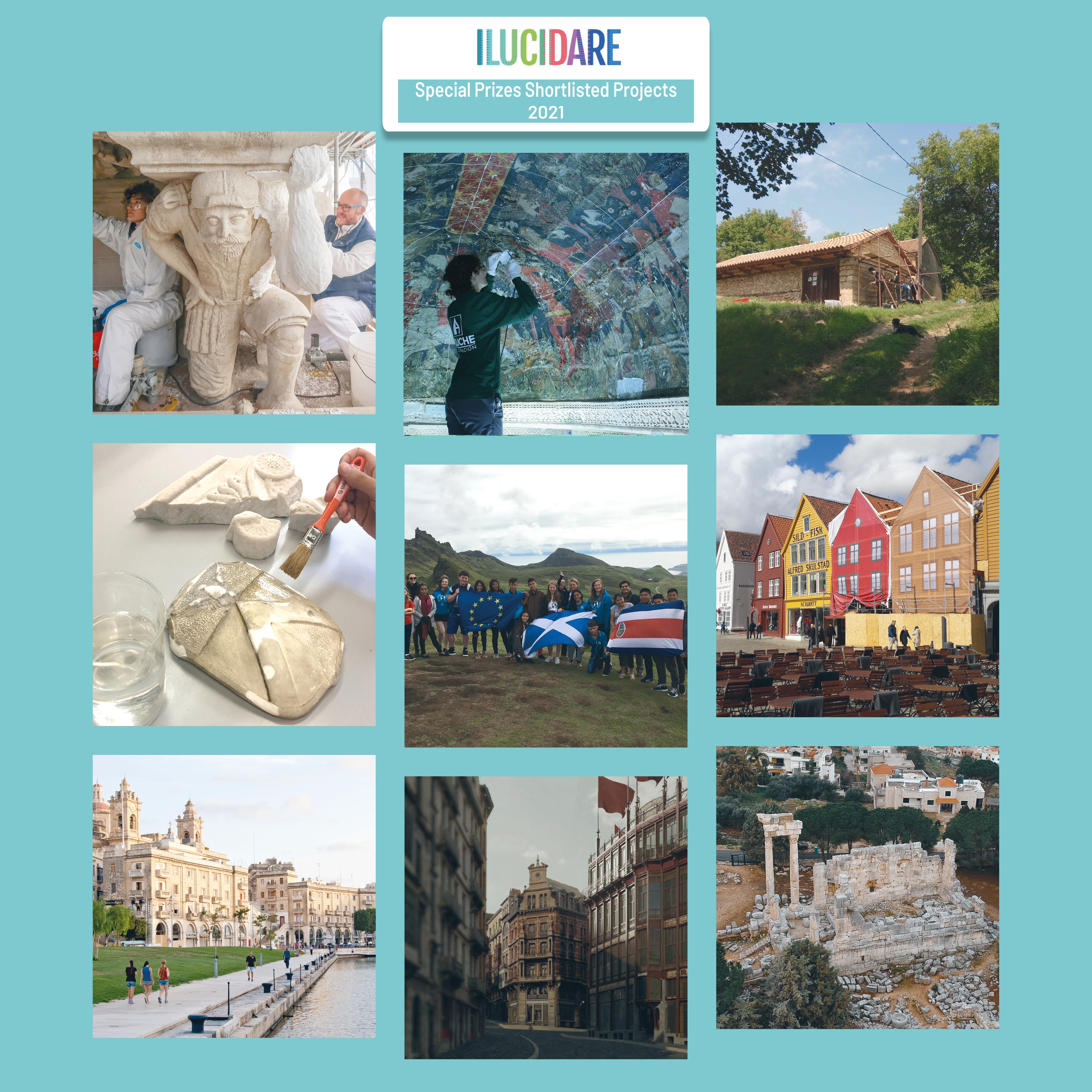EU-LAC Museums - Museums, Community & Sustainability in Europe, Latin America and the Caribbean, has been shortlisted for a Europa Nostra Ilucidare Award
EU-LAC Museums - Museums, Community & Sustainability in Europe, Latin America and the Caribbean, has been shortlisted for a Europa Nostra Ilucidare Award for Cultural Heritage-led International Relations. The final winner will be announced in autumn 2021.
EU-LAC Museums is an international team of museum professionals, community leaders, researchers and policymakers across the European Union (EU) and Latin America and the Caribbean (LAC) coordinated by the University of St Andrews. Since its inception in 2014 by Dr Karen Brown, School of Art History, in discussion with the EU and LAC Regional Alliances of the UNESCO agency International Council of Museums (ICOM), this international collaboration has jointly developed new wisdom about museum community development, youth work, and digital curation, to examine and promote a vision of museums focused on community needs and ethical considerations, supported by an array of experts including Professor Gustavo San Roman, School of Modern Languages, and Ann Gunn, School of Art History. To date, this project has successfully facilitated exchanges and improved relations between 154 countries, with 108,365 people engaging in person or online with the project activities and its primary web portal (http://www.eulacmuseums.net) and social media channels.
Organised by the University of St Andrews, led by Dr Alan Miller, School of Computer Science, between 2016-17, the Open Virtual Worlds researchers Iain Oliver, Catherine Anne Cassidy and Adeola Fabola facilitated innovative 3D workshops were held across all partner countries, leading to an impressive 129 Virtual Tours, 466 3D objects, and 67 virtual galleries. Extending to a Virtual Museum of Caribbean Migration and Memory developed in collaboration with the Barbados Museum and Historical Society and The University of the West Indies (http://www.eu-lac.org).
The impressive scale of the initiative is ensured by funding of the Horizon 2020 EU Research and Innovation Programme, under Grant Agreement number 693669. Project partners include the University of St Andrews in Scotland (Coordinator), ICOM, the Pontifical Catholic University of Peru, National Museum of Costa Rica, Austral University in Chile, University of the West Indies, University of Valencia in Spain, and National Archaeology Museum in Lisbon, Portugal.
The Jury praises the value of the intercultural, intercontinental and international relations created and sustained by EU-LAC Museums: “EU-LAC is a well-established international network that shares cultural values through the management and care for cultural buildings and monuments. Not only do they represent an international collaboration between expert organisations, the network gradually built a community with many smaller organisations in several cultural sectors in different parts of the world, creating a common language through the identification of a common goal.”
One of EU-LAC Museums many achievements is their own international and interdisciplinary museum education programme. They have delivered to policymakers — including UNESCO and EU-level organisations — new scenarios for re-thinking the definition of museums and community-based museums in ways that accentuate their social role and potential for local development. This is increasingly relevant in the context of the current health crisis and for post-crisis recovery. Such scenarios were co-created by 125 community workshops held between September 2016 and July 2020 across the regions involved. Notably, these community workshops focused on the importance of intangible or ‘living’ heritage transferred between generations, particularly among communities in remote locations, and management in environmental crises.
Over the years, EU-LAC Museums has undertaken many initiatives with great intra- and intercultural community impacts, such as the Bi-Regional Youth Exchange Programme (September 2016 – August 2018), coordinated by Youth Programme Worker Jamie Allan Brown, School of Art History, engaging 7 community museums and 72 young people from remote and island locations in Costa Rica (the Network of Community Museums), the Porto region of Portugal and Scotland’s Isle of Skye ecomuseum. During the Bi-Regional Youth Exchange Programme, 42 workshops were organised with volunteers, community elders and young people who exchanged and shared practices across regions and opinions on issues facing their communities, e.g. climate resilience, sustainability and depopulation. Another example is the international dialogue established through Caribbean museums and Higher Education in the form of exhibitions, recordings and publications on Caribbean migration to the UK – an initiative taken forwards by Dr Kate Keohane in the form of a University of St Andrews co-curated panels exhibition.
“The EU-LAC project succeeded in developing an international network with a great impact in local areas, reaching over 1 million people, including online participants. In the form of community-led museums, EU-LAC addresses interaction among civil societies on an international scale, particularly in developing countries where improved community resilience is a necessity in the face of global imbalances and rapid change.,” the Jury noted.
